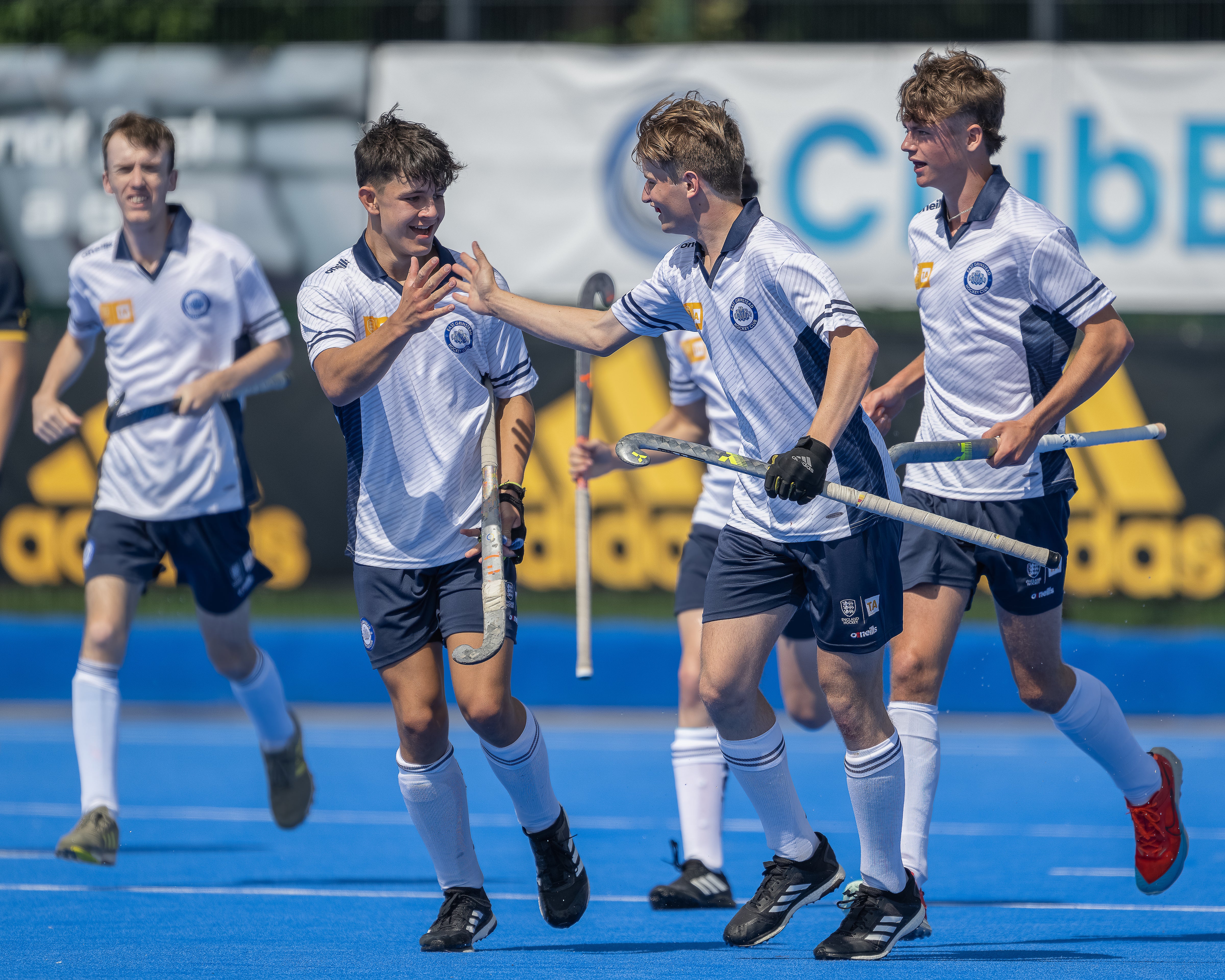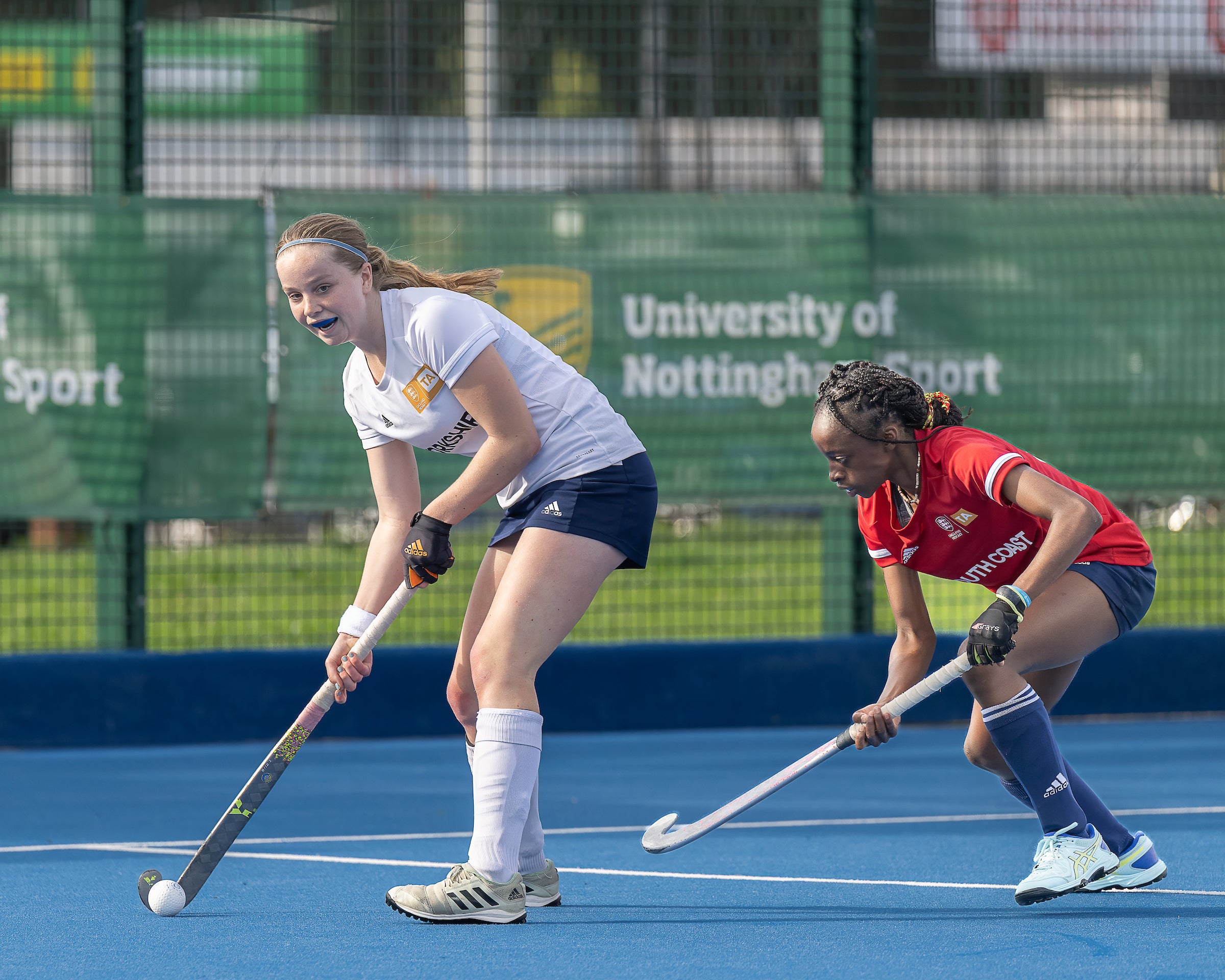- Community
Building A Person-centred Talent System - Early Signs Of Success

An athlete-centred approach involving increased collaboration is key to the transformation of England Hockey’s talent system and the early signs are promising.
Talent Development – A New Way Forward was first outlined in March 2021 following consultation with more than 500 people about the future of talent identification and development.
Talent Centres and Talent Academies have since been introduced in conjunction with six priority pillars aimed at placing the player at the heart of the system. Talent Centre accreditation is a development programme where clubs aspire to provide high quality provision for players within their own club at early talent development level. Whereas a Talent Academy is a regional hub working closely alongside schools, clubs and counties across an identified geographical area, where the country’s highest potential young hockey prospects hone their skills.
Stourport Hockey Club have seen numbers in their junior section swell from around 25 to between 200-300 in the last 10-15 years, under the guidance of James Terry and Rob Claris, and are among those who are hosting both a Talent Centre and a Talent Academy.
“We are working collaboratively to build relationships with players, parents and their day-to-day coaches,” said Terry, director of junior coaching and talent centre lead at Stourport.
“We are here to help everybody, not just Stourport HC. There has been some nervousness about players coming to the Talent Academy because they were worried they will all come and play for Stourport.
“That’s not the system at all, it is very inclusive and open and the key is to work collaboratively for the best interests of the young person. The players who accessed the Talent Academy have found that.
“We get good feedback from the players about the honesty, the quality of the coaching and the fact they always understand where they are in the process.
“They receive key targets, and the increased contact time allows greater individual support. It gives them someone to lean on for advice and it is incredibly valuable for players, who have not really experienced that before.”

Stourport’s Talent Academy catchment area spans Gloucestershire, Herefordshire, Shropshire and Worcestershire, which Claris – the club’s Talent Academy director - likens to ‘fishing in a tight pool in a large area’.
“We quickly started building the relationships we needed to at county, club and school level as getting buy-in from parents and schools was key to bringing it all together,” he added.
“I think we have done a pretty good job, to the extent that the first level of age group selection had three of our players picked for the England U16s squad.
“We want to become more inclusive and encourage state school children into the system and we are talking to the counties about introducing taster days to support this ambition.
“We are providing multiple opportunities where players can be observed by the Talent Academy and creating new partnerships to develop connections with future potential players, their coaches and other environments. That is giving us feedback in itself.
“Identifying talent is the biggest challenge, to make sure the right people are accessing the right environment – not necessarily ours, wherever may work for their locality. We want to give England Hockey the best chance of identifying highest potential children.”

Contact time for athletes has considerably increased for players in the Talent Academy environment, with a 44-week programme in place and over 100+ hours contact time per athlete per year.
And there is far more factored in than just on-field performance, as England Hockey’s Talent Partnership Manager Sion Kitson explains.
“It’s about the person, their development and meeting their holistic needs,” he said.
“Talent Academies have a responsibility to provide high quality hockey but also offer a broader education programme in line with the complete player qualities educating players on nutrition, performance analysis, leadership, all important life skills and fundamental to progression within high level sport.
“There is also further educational support for players post GCSEs through the Diploma in Sporting Excellence (DiSE) which targets state school children with an opportunity to access a certified programme and come out with a qualification that can help towards university or being upskilled in different areas such as lifestyle management, coaching and umpiring.
"The principles of DiSE are based around the role sport plays in developing young people and we are pleased for this coming year that 100% of our 130 places have been accessed by state school children.
“We are not just here to put on hockey, we are here to put on great experiences involving hockey and providing life opportunities that hopefully stand them in good stead, whether they pursue a career in or out of sport.”
Any project on this scale is not without challenges but Kitson, who has been in post since December 2021, is pleased with progress to date and optimistic about the future.

"We are trying to create multiple routes to progress so we can diversify and welcome different young people with different backgrounds the opportunity to access environments across the talent system,” he said.
“We will continue to put the young person at the centre. Each one is on their own unique journey and will follow a different path and it is all our responsibilities to ensure when we cross their path, we offer exceptional provision.
“I’m excited to see Talent Academies and Talent Centres embed themselves and provide a facility to serve the development of young people.
“From a Talent Centre perspective if we can engage 100+ clubs with this comprehensive development programme, that’s potentially tens of thousands of young people receiving a higher standard of delivery. It all comes back to collaboration between schools, clubs and counties, and we have a job to do to make sure each of those environments feel valued and understand their roles and responsibilities to provide young people entering and progressing through the talent system the best experience.
“We are still learning, it is still in the early stages, but signs are positive.”

